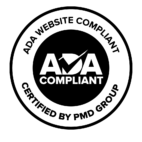
There are many reasons to get a new car; it could be that you require a more reliable, spacious, or modern vehicle. People often trade in their current vehicle for a new one. If you are still making payments on the current car, a dealer will offer to transfer the remaining balance into the new auto loan. This is a tempting offer, but before you take it, make sure you think about it. Examine the available alternatives, and consider the risks of taking the offer. The option could increase the amount you eventually pay for the car.
Disadvantages of Rolling the Current Loan into a New Auto Loan
- Transferring or “rolling over” your existing loan can put you in additional debt, and that affects every aspect of your life.
- Selling the car outright can also lead to losses because the selling price might not cover the outstanding loan.
- In case of an accident, insurance companies will only compensate based on the value of the car, not the “rolled over” excess. you are still responsible to pay the original loan difference.
When possible, drive your existing vehicle until you pay off the debt or pay down the loan so you are not “upside-down” before purchasing a new vehicle. More and more people trade in their current vehicles for one they cannot afford without understanding the consequences.
Look Into Other Means of Payment
It is common for car dealerships to partner with lenders to offer auto loan financing. Although this is convenient, many times car dealership financing may not offer the best interest rates and terms. Before you visit a car dealership, it’s best if you get pre-approved with Eastex Credit Union. You can discuss your budget and terms with an Eastex Loan Officer to ensure you stick to your budget and don’t fall into any traps by salespeople. Our Loan Officers can help you conduct research, discuss extended warranties, guaranteed auto protection, and credit life and disability insurance before you ever step foot into the dealership.
Try Selling the Old Car First
A private sale might give you more money than trading in your car at the dealership. Several websites offer a convenient and user-friendly means of selling used cars. Before selling the car, determine its exact value through available car appraisal sites. Make sure you provide accurate information for mileage and the condition of the vehicle because it will affect the value of the car.
You will need to use the money from the private sale to pay your remaining loan balance. If you owe money after selling the vehicle, you can contact your bank or lender and see if you qualify to transfer the outstanding balance to a private loan or come up with a payment arrangement.
Negotiate For the Best Deal
Before signing the contract to get a new car, do everything possible to get the best price. You can negotiate for a lower down payment and even interest rates. You should also compare prices offered by different car dealerships. Although a dealership may offer an attractive offer for a new car, you should know that its value will significantly depreciate over time, and that will affect its value when it is time to sell the vehicle. Also, if you are in a position try to make a 20% down payment or at least pay tax, title and license fees upfront. In today’s climate, don’t forget to ask for available incentives.
Rolling over your current auto loan into a new auto loan should be the last choice. Make sure you explore every possible alternative before taking the offer. To speak with a loan officer, call 409-276-2525, option 1, or apply online today.



